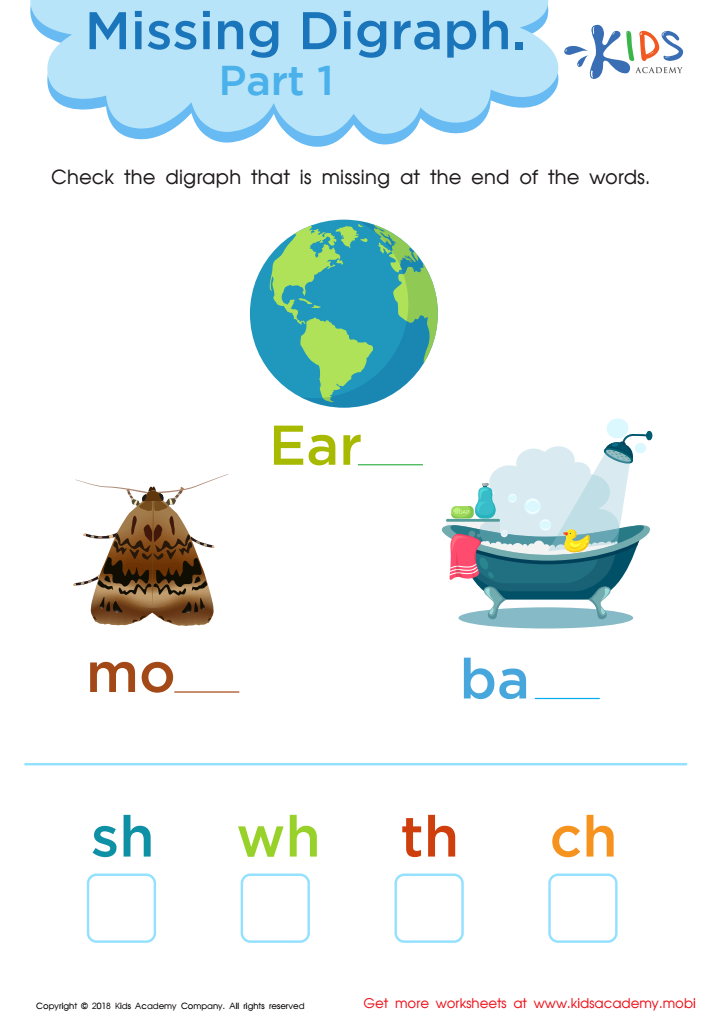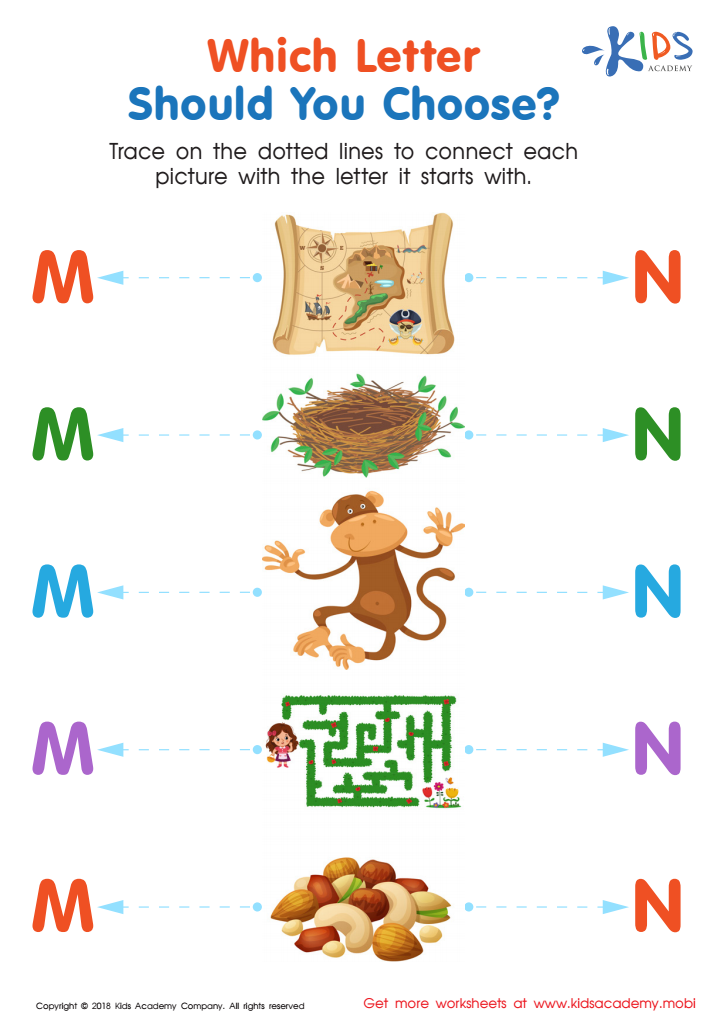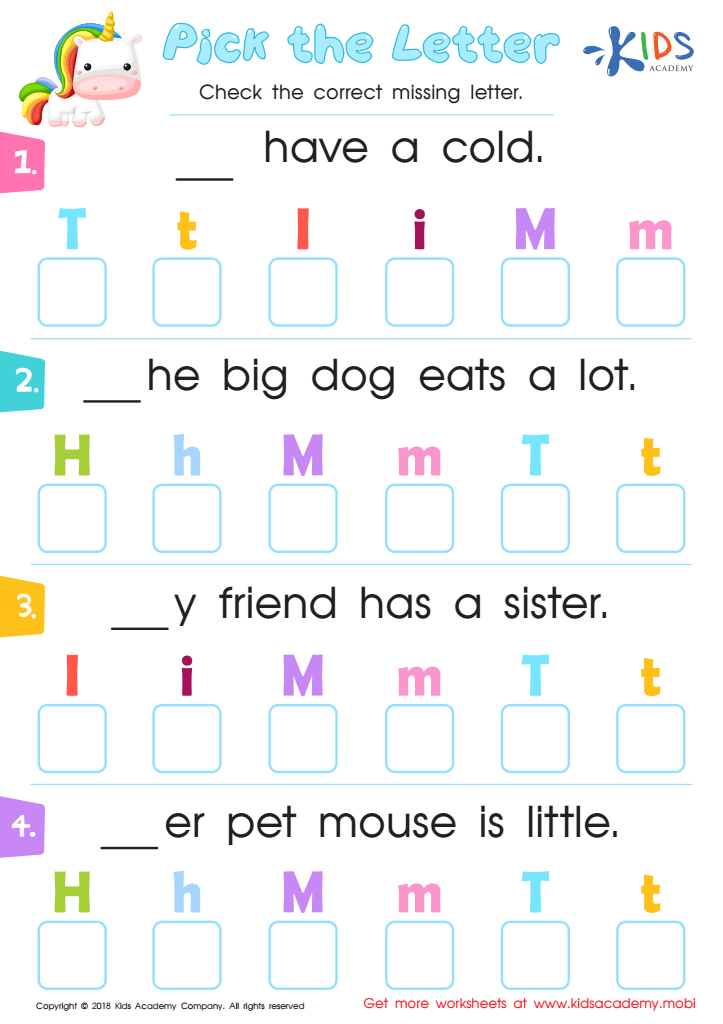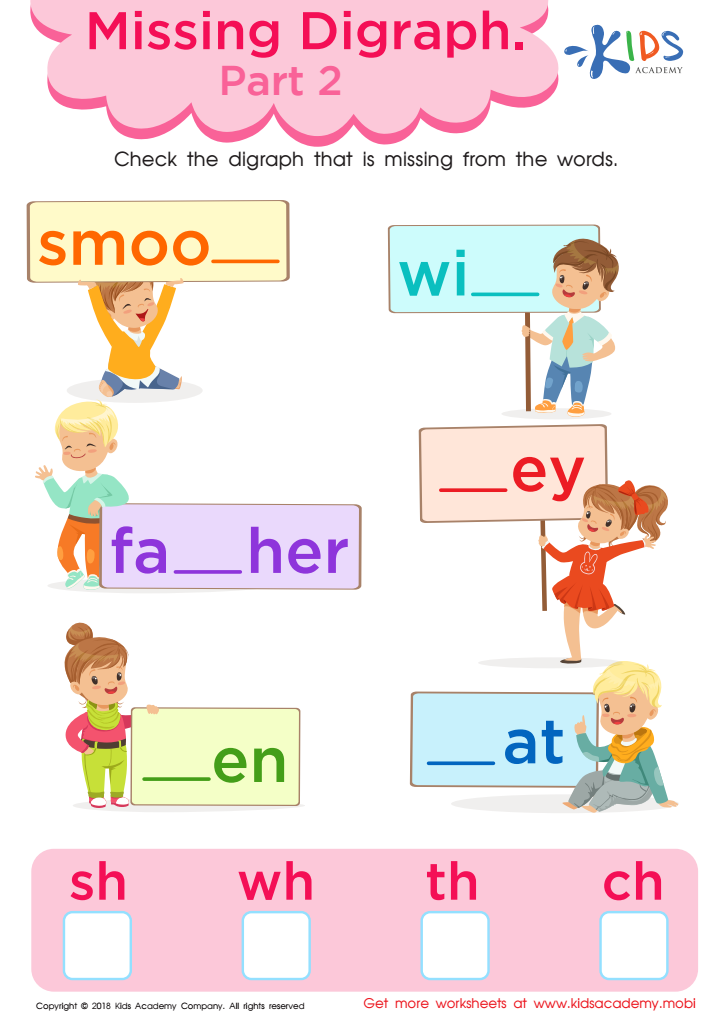Normal Missing Letters Worksheets for Ages 3-7
4 filtered results
-
From - To
Explore our engaging Missing Letters Worksheets, designed specifically for children aged 3-7. These captivating worksheets bolster young learners' alphabet recognition and sequencing skills. Through a variety of fun activities, kids will confidently fill in the missing letters, enhancing their understanding of letter order and phonics. Ideal for both classroom and home use, our worksheets offer a solid foundation for early literacy development. Empower your child to become an alphabet expert with our easy-to-use, printable resources. Download today and watch them thrive in their language learning journey!


Missing Digraph: Part 1 Worksheet


Which Letter Should you Choose? Worksheet


Pick the Letter Worksheet


Missing Digraph: Part 2 Worksheet
Normal Missing Letters activities are crucial for the development of young children, aged 3-7, because they significantly enhance foundational literacy skills. During early childhood, neural pathways are highly adaptable, making it a prime time for language acquisition. Missing Letters exercises help solidify letter recognition and phonemic awareness, which are integral to reading and writing proficiency.
Firstly, engagement in such activities strengthens a child's ability to identify and differentiate between letters, fostering a solid understanding of the alphabetic principle. This foundational knowledge directly correlates to reading fluency and accuracy. By filling in missing letters, children practice spelling, enhance their vocabulary, and develop critical thinking skills as they deduce the correct letter based on context.
Secondly, it encourages fine motor skills development. Writing out the missing letters involves precise hand movements that improve hand-eye coordination, better preparing children for more complex writing tasks.
Additionally, these activities can be fun and interactive, capturing the attention and interest of young learners. They provide opportunities for positive reinforcement from parents and teachers, boosting a child’s confidence and motivation. By integrating Missing Letters exercises into daily routines, educators and parents set the stage for lifelong literacy skills, contributing to a child's overall academic success.
 Assign to My Students
Assign to My Students









